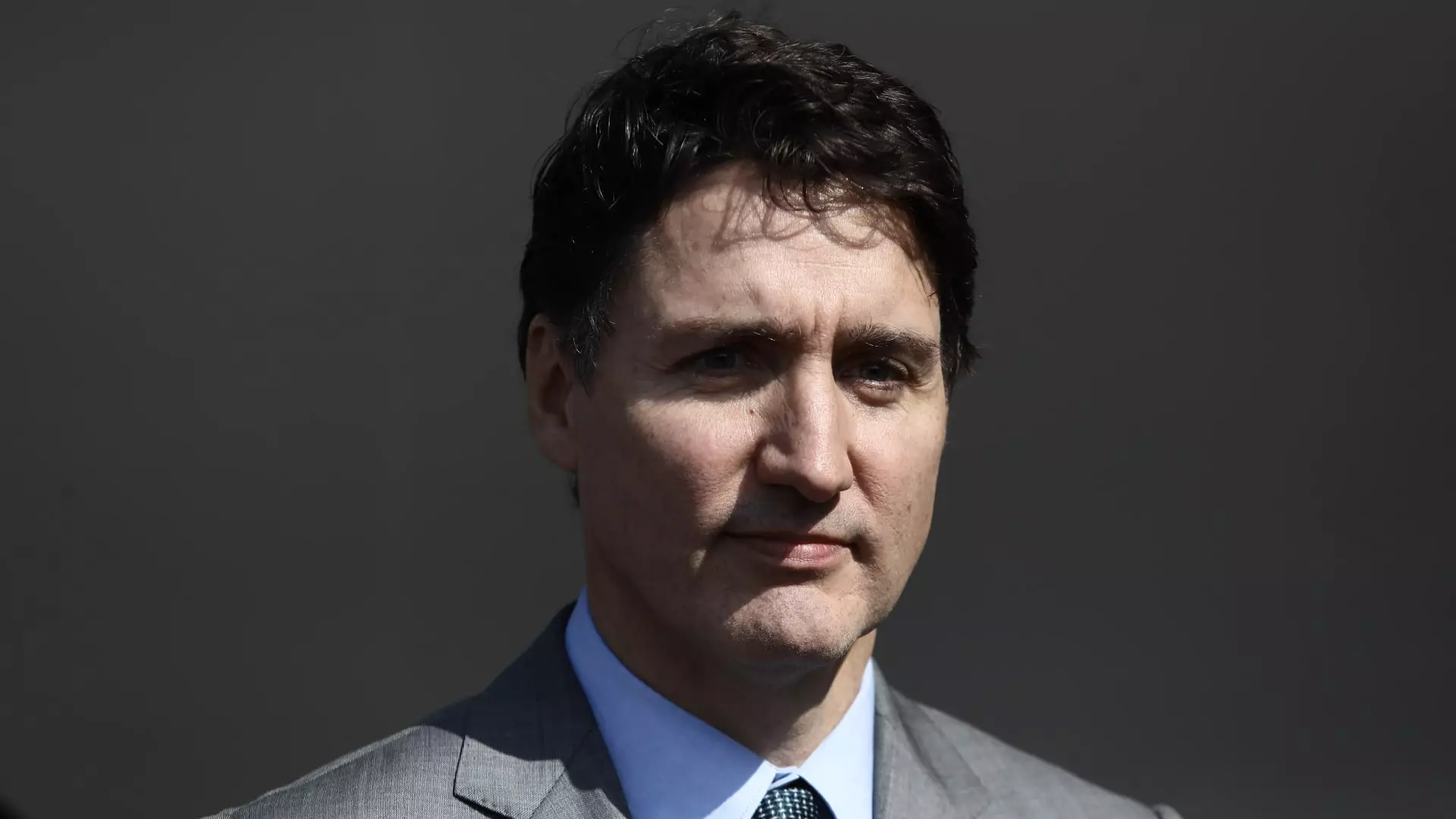A storm is brewing within the ranks of the Canadian Liberal Party, as Prime Minister Justin Trudeau appears poised to make a significant announcement regarding his leadership. Sources close to the situation suggest that Trudeau is contemplating stepping down after nearly a decade at the helm, a move that could send shockwaves through Canadian politics. While a specific timeline for his announcement remains uncertain, reports indicate that he may address his intentions as early as Monday, just before an emergency meeting of party legislators scheduled for Wednesday. The pressure is mounting for Trudeau amid increasingly dire polling numbers, which suggest a potential loss to the opposition Conservative Party in the imminent federal election.
Trudeau, who took on the role of Liberal leader in 2013 during a tumultuous period for the party, has faced mounting public and parliamentary pressure in recent months. Many Liberal parliamentarians have begun publicly calling for his resignation, citing a series of disappointing poll results that indicate the party is losing ground. With an election that must take place by late October, the urgency to have a stable leadership in place is becoming more acute. Trudeau’s leadership has suffered from a series of missteps and contentious political decisions, leaving many to question his ability to reclaim political momentum.
Recent events have compounded the situation. In December, Trudeau’s attempt to demote Finance Minister Chrystia Freeland—a key ally—resulted in backlash, ultimately leading to her resignation. Freeland accused him of engaging in “political gimmicks” rather than prioritizing substantive governance, which sent ripples through the party and intensified the calls for change at the top.
Trudeau’s rise to prominence came on the heels of a promising vision for Canada, characterized by phrases like “sunny ways” and a commitment to progressive policies aimed at advancing women’s rights and environmental stewardship. The 2015 elections breathed new life into the Liberal Party, which had been languishing in a distant third position in the House of Commons. However, governing has proved to be more challenging than campaigning, as the realities of policy implementation increasingly impacted Trudeau’s approval ratings and party support.
Over the years, Trudeau’s administration has been marked by ambitious spending initiatives aimed at addressing social issues and bolstering the economy. Yet, these fiscal strategies have resulted in record budget deficits, leading to growing public dissatisfaction as inflation rates surged and everyday costs soared. The unfurling crises—most notably, immigration challenges that further strained housing markets—have left many citizens feeling disaffected and frustrated.
Should Trudeau formally resign, it would not only create a leadership vacuum within the Liberal Party but could also trigger a renewed call for a swift electoral process. The stakes of the next election are particularly high, especially with the looming presence of President-elect Donald Trump in the United States. Observers speculate that a change in leadership may be crucial for the Liberals to mount a credible challenge against the Conservatives and establish a vision for the future that resonates with voters who feel overlooked or dissatisfied with the current administration.
Finance Minister Dominic LeBlanc has been mentioned as a potential interim leader, although discussions around his willingness to step into such a role have yet to reach a firm conclusion. The lack of a clear succession plan could further destabilize the party during a period where quick, decisive action is necessary.
As Canada looks ahead to the prospect of leadership change within the ruling party, the political landscape is teetering on the edge of a transformative moment. Trudeau’s potential resignation could serve as a catalyst for new directions and alliances within Canadian politics. For his allies and critics alike, the unfolding events offer a potent reminder of the unpredictability of political fortunes and the brewing tensions that can reshape party dynamics and electoral strategies.
In the coming days, all eyes will focus on Trudeau as he contemplates his next steps and the implications of those actions on the future of the Liberal Party and the nation as a whole.


Leave a Reply